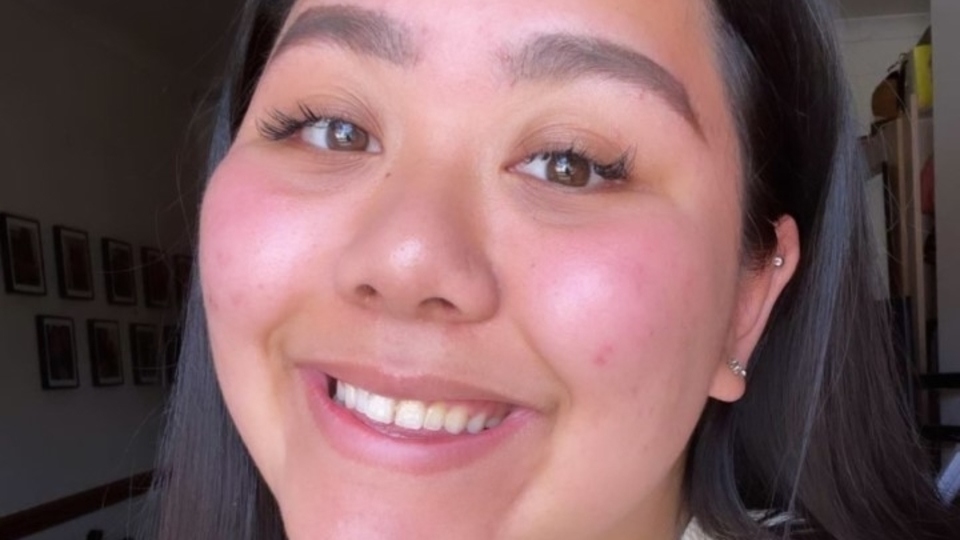Adopted children facing mental health emergency, charity warns
Date published: 29 June 2021

Mimi Woods has suffered from mental ill-health
Adoption UK is warning of a mental health emergency amongst some of the UK’s most vulnerable children, caused by failings in a system that is not set up to meet their needs.
This year’s Adoption Barometer report reveals that two-thirds (64%) of adopted people aged 16+ have sought help with their mental health, and the numbers are rising.
Almost half (46%) of adopted people aged 16-25 were involved with mental health services in 2020, compared to the national figure of 17%.
Yet most say they have been unable to access the support they need.
Most adopted young people suffered abuse, neglect or violence in their early years, with lasting impacts on relationships, learning and health, leaving their adoptive families to pick up the pieces when professional support is not provided.
Adoption UK’s CEO Sue Armstrong Brown said: “For the third year running, 71% of Barometer respondents said they face a continual struggle for support.
"All too often these families are being failed by a system which invests heavily in the placement of children for adoption, then fades into the background, often with terrible consequences for the mental health of the children and their adoptive families.”
The survey results highlight the consequences of failure to provide early and consistent support for adopted young people.
More than a quarter of 16-25-year-olds were not in education, employment or training at the end of 2020 - more than twice as high as UK averages.
Involvement in high-risk and criminal activities has steadily increased since the first Adoption Barometer in 2019.
Problems are often compounded by children falling through the cracks between child and adult services.
Almost three quarters of parents said their child’s support reduced or ceased when they aged out of services for adolescents.
Mimi Woods, aged 18, said: “I suffer from mental ill-health, which is linked to my past trauma.
"This happened when I was very young but it affects you later in life.
"It comes from a feeling of not being wanted and not having a place, or an emotional connection to anyone.
“I had a meeting with Child and Adolescent Mental Health Services (CAMHS) in which I explained I was really ill but didn’t know why I did what I did.
"I had no feelings and wanted to end my life.
"I was put on medication but when they were happy I wasn’t going to do anything, contact just stopped and I’ve not heard from them since.
“I’ve recently realised it was all linked to me feeling lost within myself.
"I’m part of a young adopted people group and everyone in the group has suffered from trauma, depression and suicidal thoughts.”
The Barometer survey also shows that contact with birth family often looms large during adolescence and early adulthood.
More than a quarter (28%) of 13-18-year-olds had direct contact with a birth family member outside of any formal agreement.
For some, this has devastating consequences for mental health and family stability.
When families do get support, their assessments of its quality and the impact on their family have increased on all indicators since last year - a considerable achievement considering the pandemic.
Adopter experiences in Wales have improved at both approvals and matching stage, and among families with older children, due to investment in adoption services in 2019.
The emergency COVID adoption support fund in England has been widely praised by families.
Ms Armstrong Brown added: “This year presents real opportunities to re-set support for adoptive families.
"The ongoing review of children’s Social Care in England and the debate about COVID recovery are both opportunities we must grab if we’re going to give our most vulnerable children an equal chance in life.”
Adoption UK is setting out a six-point plan to improve the life chances of adopted young people.
It includes multi-disciplinary assessments and support plans for every child placed for adoption and the extension of adoption services to at least age 26.
Do you have a story for us? Want to tell us about something going on in and around Oldham? Let us know by emailing news@oldham-chronicle.co.uk , calling our Oldham-based newsroom on 0161 633 2121 , tweeting us @oldhamchronicle or messaging us through our Facebook page. All contact will be treated in confidence.




